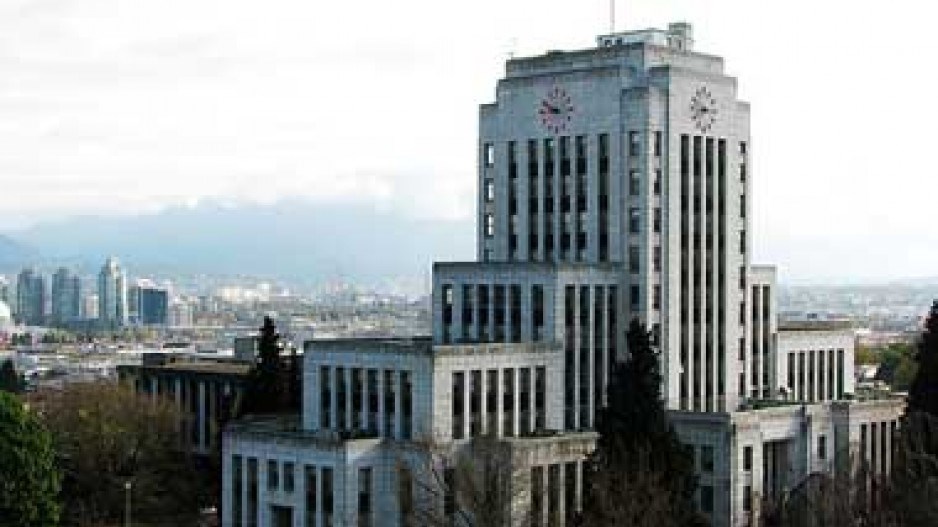Vancouver's municipal government increased its operating spending by an unsustainable rate of 31% – after adjusting for inflation and population growth – between 2000 and 2011, according to a Canadian Federation of Independent Business (CFIB) report released November 5.
The CFIB ranks a municipality's spending as unsustainable when it grows at or above the rate of inflation and population growth.
In a list of 153 municipalities in British Columbia, the CFIB ranked Vancouver at number 78 (with number one being the worst) in terms of increased spending per capita. In 2011, the municipal government spent $1,373 per person, compared with $1,048 in 2000.
"Overspending by local governments leads to high taxation, which puts pressure on local commerce and stifles job growth," the report states. "For local governments, the choice is clear: address overspending now or leave a greater burden for future governments to deal with down the road."
Victoria came in at number 85, with an increase of 26% over the same period from $1,110 in 2000 to $1,398 in 2011, after adjusting for inflation and population growth
Across the province, the study found that the average increase in operating spending per capita was 32% to $945 per person, which represents $5.4 billion in excess spending. The CFIB said this increase is beyond what should be considered sustainable and fiscally responsible.
Not a single municipality with a population over 25,000 kept spending in line with inflation and population growth. The worst municipality in this category was Langford, which saw a 132% increase in operating spending. Nanaimo saw the smallest increase, with 12%.
Vancouver city councillor Raymond Louie questioned the study, calling it "simplistic and lazy."
"Since 2012, Vancouver has reduced its debt by $150 million and saved $50 million in operational costs through the Vancouver Services Review, a program brought in by Vision Vancouver in 2009," Louie said. "We've kept taxes to among the lowest in the region and negotiated a new labour agreement that tracks below the rate of inflation over a four-year term.
"The CFIB continues to ignore these gains and instead chooses to try and score political points."
The CFIB said it is not too late for municipalities to adopt spending practices that are sustainable and fiscally responsible, and it recommends:
- limiting municipal operating spending increases to the rate of population growth and inflation;
- identifying and reviewing core services to ensure effective fiscal management;
- aligning public sector compensation with the private sector (the CFIB said there is currently a 35.1% gap between the two sectors);
- increasing transparency of municipal financial information; and
- supporting the mandate of and abiding by the recommendations of the province's municipal auditor general.




